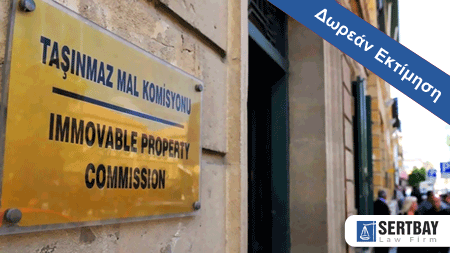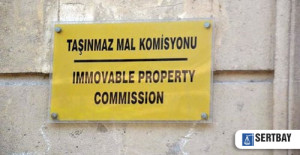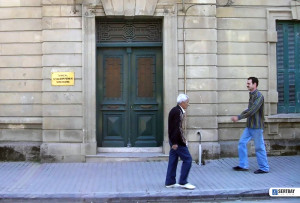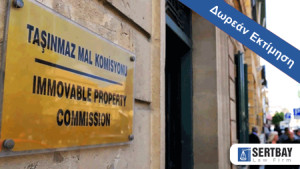Immovable Property Commission

The Immovable Property Commission was created under the Immovable Property Law (No. 67/2005) following rulings by the European Court of Human Rights in the Xenides-Arestis v. Turkey case. Its goal is to provide a way to handle claims related to abandoned properties in Northern Cyprus.
On March 1, 2010, the European Court of Human Rights confirmed that Law No. 67/2005 offers an effective remedy and rejected complaints that domestic remedies were not exhausted.
The Immovable Property Commission officially started on March 17, 2006, with its President, Vice-President, and members appointed by the Supreme Council of Judicature. The members include Ms. Növber Ferit Veçhi (President), Mr. Oktan Türe (Vice-President), Mr. Bengü Ünsal, Mr. Erhan Berksel, Ms. Christiana Kruger, Mr. Daniel Tarschys, and Mrs. Saskia Yorucu.
The Immovable Property Commission reviews claims for property restitution, compensation, and exchange according to Law No. 67/2005. It follows the principles of bi-zonality and bi-communality from the 1977-1979 High-Level Agreements and United Nations plans for Cyprus. The Commission aims to address legitimate property claims while respecting the rights of the Turkish Cypriot community.
As of August 16, 2024, the Immovable Property Commission has received 7,667 applications, with 1,838 completed. It has awarded £465,161,296 in compensation. Decisions have included exchange and compensation in 3 cases, restitution in 5 cases, and both restitution and compensation in 8 cases. In one case, a decision for restitution was postponed until after the Cyprus issue is resolved, and in another case, partial restitution was granted.
The Immovable Property Commission strives to provide fair, quick, and effective solutions for property claims and hopes to help resolve the Cyprus issue comprehensively.
What We Offer at Sertbay Law Firm?
At Sertbay Law Firm, we provide comprehensive and complete representation for anyone wishing to apply to the Immovable Property Commission. We take pride in our professional and effective approach, ensuring high-quality service from the beginning of the application process to the end.
Our firm has efficient and supportive team members who property analysis and valuations, which are significant for the success of applications.
From the moment you enter Sertbay Law Firm, we place great importance on your expectations. We make every effort to provide the best service available. We assure you that Sertbay Law Firm will meet and exceed your expectations regarding professionalism, effectiveness, and client understanding.
At Sertbay Law Office, communication with our clients is very important to us, and we are proud that we are able to speak in Greek language with our clients.
Who We Are?
Sertbay Law Firm is one of the most dynamic law firms in the northern part of Cyprus. The talented team of lawyers at the firm has earned an excellent reputation in handling cases before the Immovable Property Commission, as our goal is to provide professional and effective legal services.
Currently, our law office is located in the northern part of Nicosia, 100 meters from the Ledra Street checkpoint, and we maintain offices throughout the northern part of Cyprus. Our legal team consists of lawyers and legal advisors, along with support staff members.
We take pride in the fact that all our lawyers are graduates of the UK Universities and are fluent in Turkish and English. Additionally, the founder of our law firm is fluent in Greek language.
At Sertbay Law Firm, our mission is to serve the interests of our clients, understand their goals and objectives, and meet their expectations through results and success.
The Procedure for Applying To The Immovable Property Commission
The procedure for applications submitted to the Immovable Property Commission is similar to that of legal proceedings against the State/Government, following the rules of civil procedure.
When an application is submitted to the Immovable Property Commission, the applicant is entitled to seek the return of their property, an exchange with property in the Republic of Cyprus, or monetary compensation which is the most commonly chosen remedy.
If you intend to pursue any of the above options through the Immovable Property Commission, you will need to provide us with the following:
- Title Deed of the Immovable property or a Search Document from the land registry
- Identity card or Passport of the applicant
Once these documents are ready, we advise you to book an appointment in order to proceed with the preparation of the application.
FREQUENTLY ASKED QUESTIONS
1. Who can apply to the Immovable Property Commission?
- Anyone who has property in the northern part of Cyprus. As of 18 October 2024, 7,781 applications have been submitted to the Commission.
2. Why was the Immovable Property Commission established?
- The IPC/Compensation Commission was established following a decision from the European Court of Human Rights and is internationally recognized.
3. Do I need to present the original title deed?
- The process can begin with a certified copy of the title deed or a search document from the land registry.
4. What documents do I need to provide?
- Title deed or a search document from the land registry
- Applicant's ID or passport
5. Can your law firm assist with the property valuation?
- We can provide a preliminary valuation free of charge for those who will proceed with the application. We can also arrange for you to obtain an official valuation.
6. Is it possible for your law firm to handle my application alongside a Greek Cypriot lawyer?
- In the past, we have collaborated with many lawyers, including the law firm Stylianos N. Christoforou and Associates (www.snclaw.eu) as well as lawyer Mr. Andreas Plastiras, effectively and successfully.
7. Do I need to appear multiple times before the Immovable Property Commission during the hearing of my application?
- The applicant needs to be present when submitting the application and when receiving the compensation.
8. If my property is mortgaged, can I apply to the Immovable Property Commission?
- The mortgage does not prevent the applicant from approaching the Immovable Property Commission. However, the mortgage must be lifted before the end of the process.
9. How is the compensation calculated by the Immovable Property Commission?
- The Immovable Property Commission calculates the compensation to be awarded by considering the 1974 value, current market value, investments around the property plus the loss of use since 1974.
10. How long does it take for applications to be processed?
- Currently, it takes approximately a few years to complete the process.
11. How will I receive the compensation awarded to me by the Immovable Property Commission?
- A personal account will be created in your name at a bank of your choice, and the compensation will be deposited into that account. From there, you can transfer your funds to any bank account you wish.
12. Does the Immovable Property Commission actually pay out money?
- Yes, this is definitely the case. As the commission is regularly evaluated by the European Court of Human Rights Delegates Committee, it has no option to not pay. Recent one-off payments and the laws passed to fund compensations are clear indicators of the commission’s effectiveness.
13. What if I have submitted an application to the commission before but cannot communicate at all with my representative?
- In such cases, it is highly recommended to change your representative to someone you can communicate with easily.
14. If I need any information, whom can I contact?
- You can contact us directly. You can reach us via our phones, email, WhatsApp, or Viber.
15. We have never been to Northern Cyprus. How can we find your office?
- Our office is within walking distance from the Ledra Street checkpoint. The map on our website clearly shows our location. However, if you still cannot find us, you can always ask us to send you a location or have our assistant come to pick you up.
16. So, if we want to start the process, what should we do first?
- You should contact us and request an appointment. As mentioned earlier, your identity card/passport, the title deed, or the land registry search is sufficient for the application to the Immovable Property Commission.
How to Find Us
We are located close to the Ledra Street checkpoint. From the Ledra Street checkpoint, cross the road and walk straight until you find the well-known Saray Hotel. Just before reaching the Saray Hotel, you will see a café on your right. Turn left at the café, and in 50 meters, you will see the Sertbay Law Office. We are on the 2nd floor above the stationery store "Saydam Berberoglu."
You can always ask us to send you a location or to pick you up from the checkpoint if you are not comfortable finding your way.
Contact Us Now To Book an Appointment !
Cyta mobile: 99166237 (whatsapp or viber)
NC Mobile: +90 548 8802020 (whatsapp or viber)










